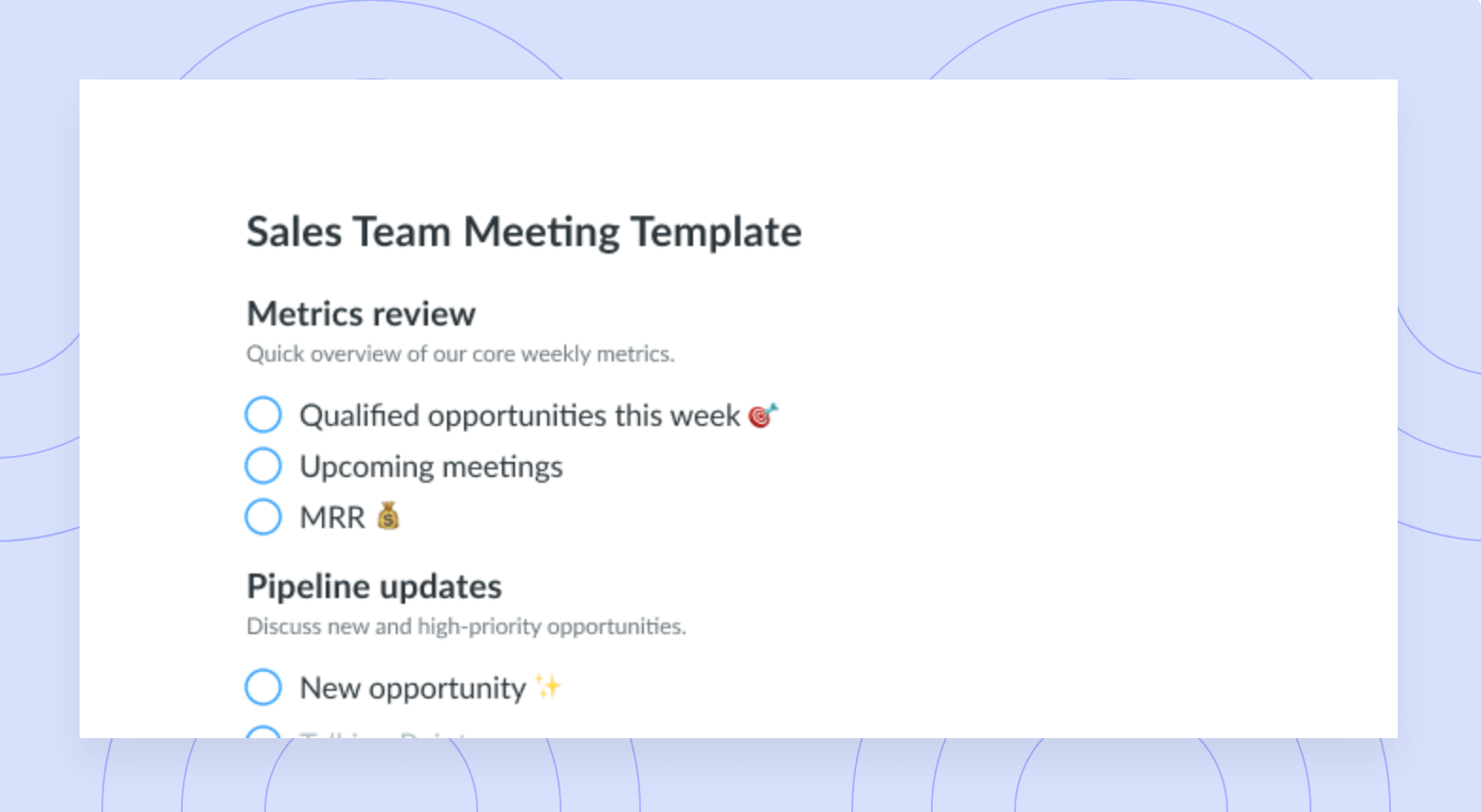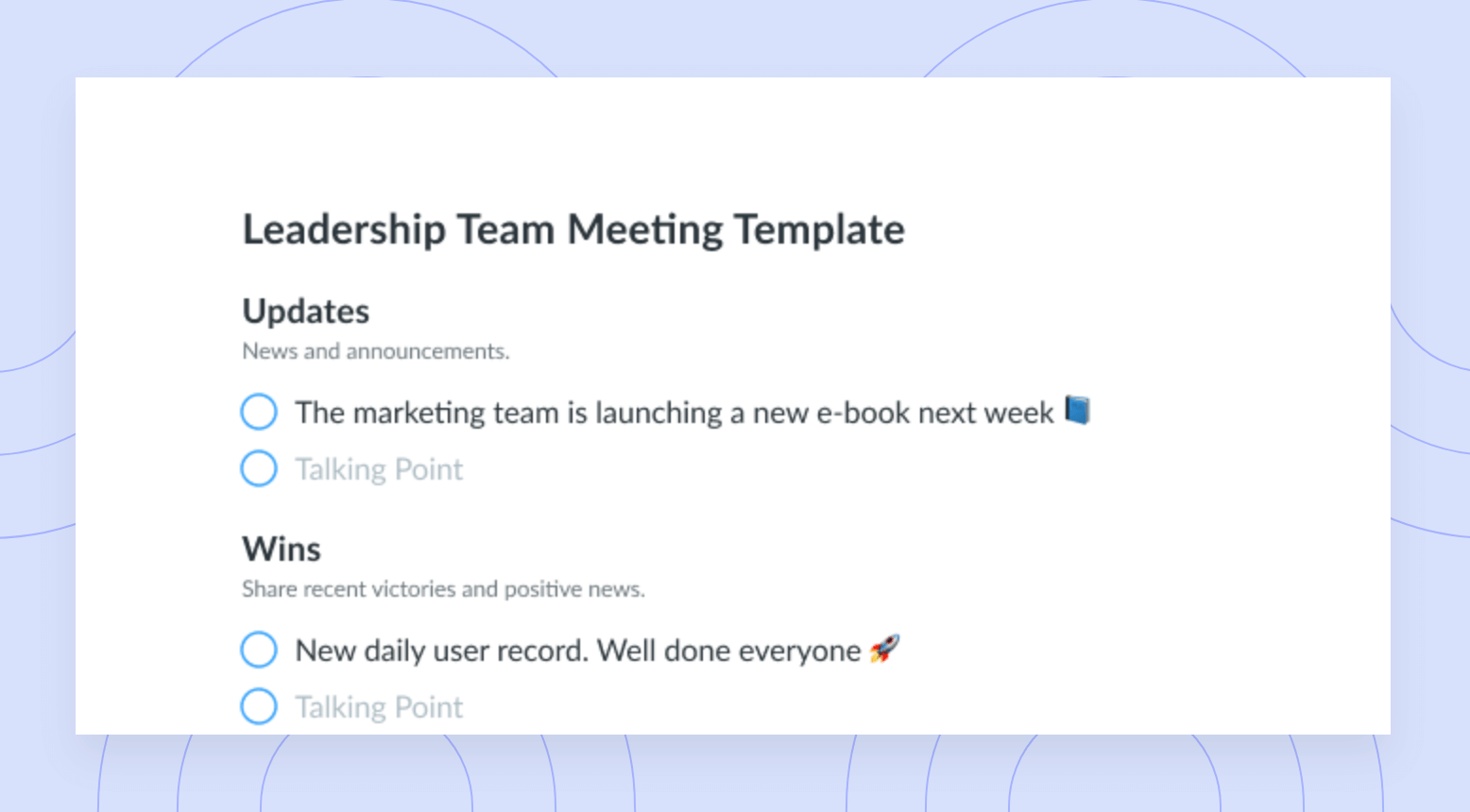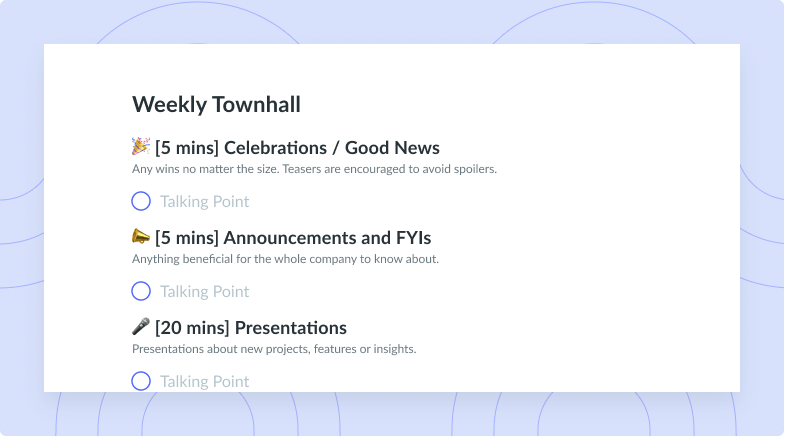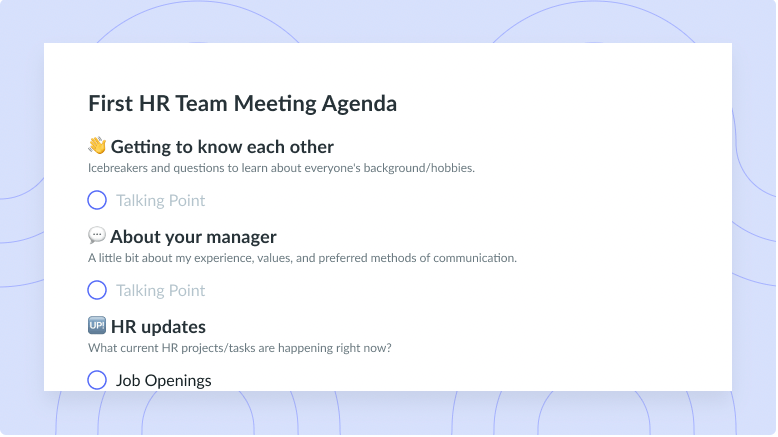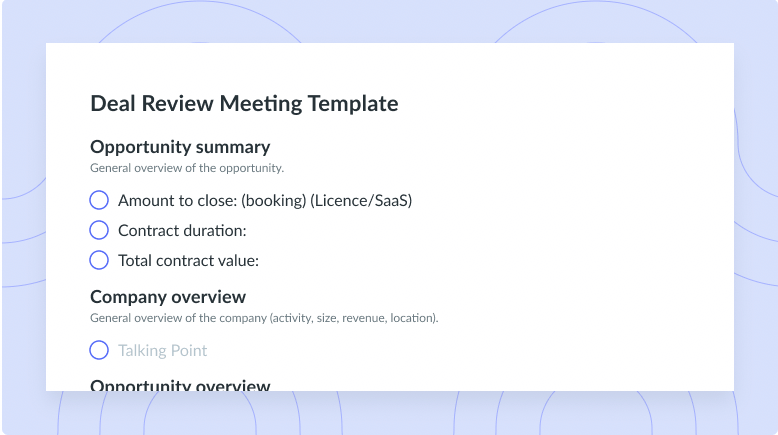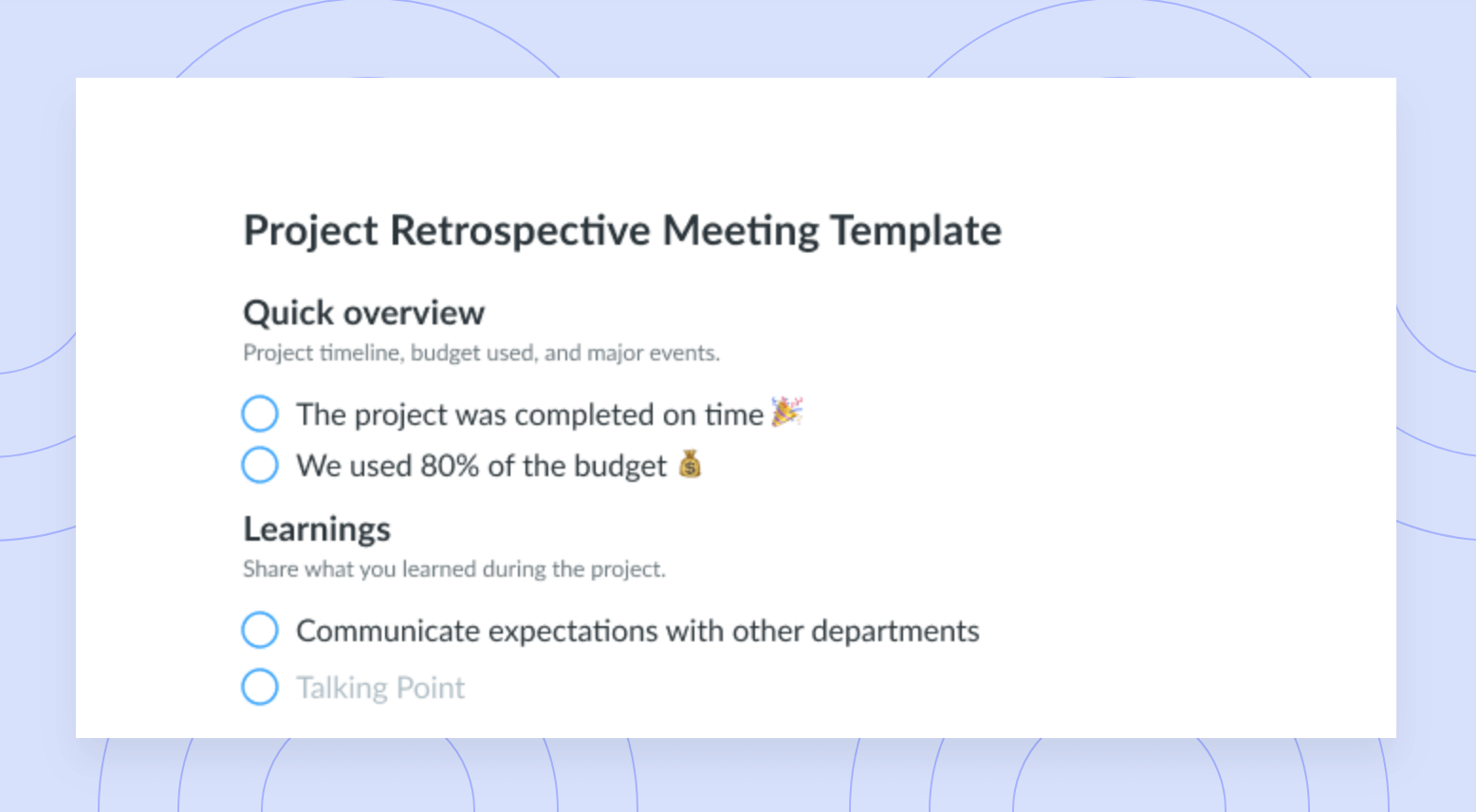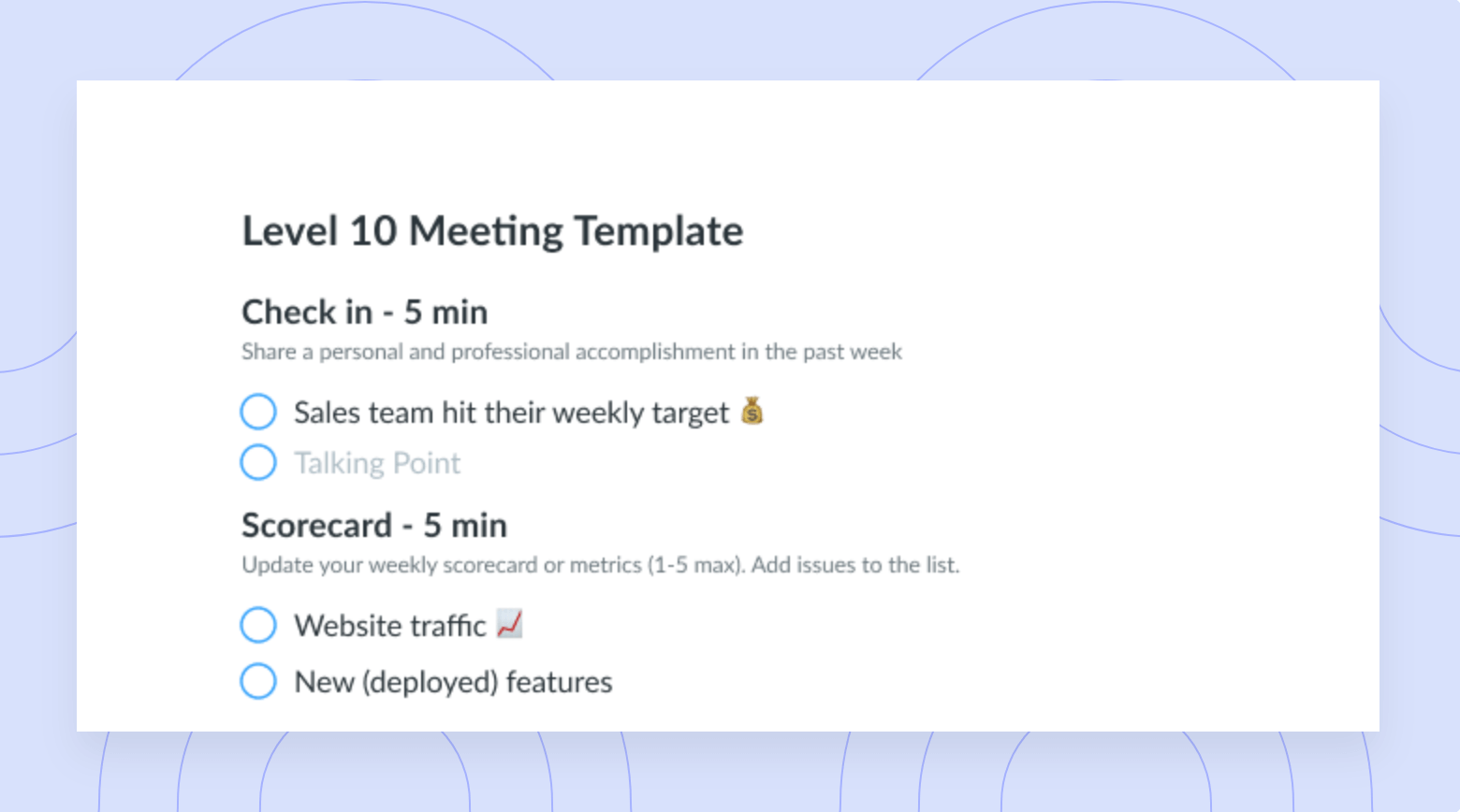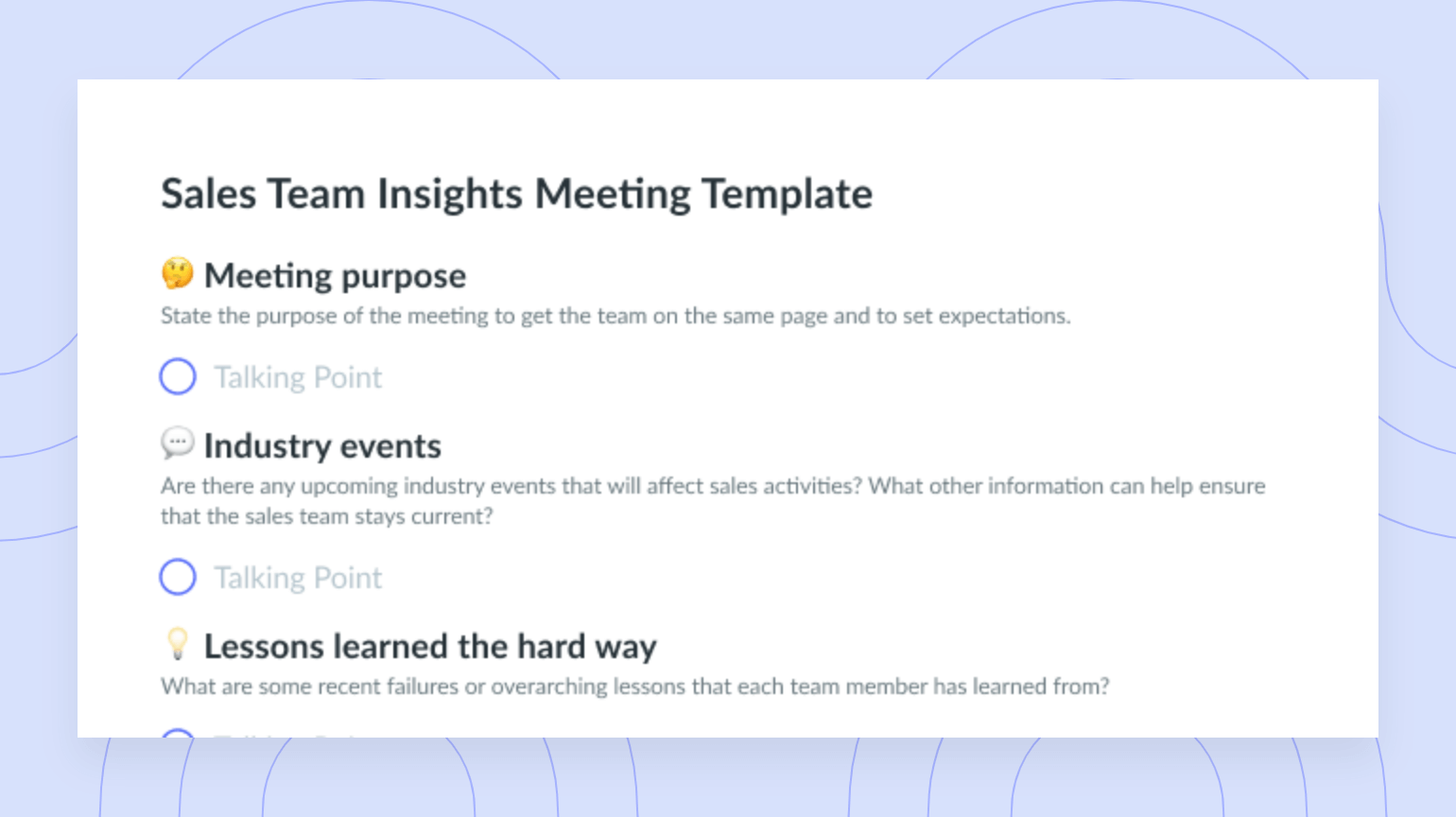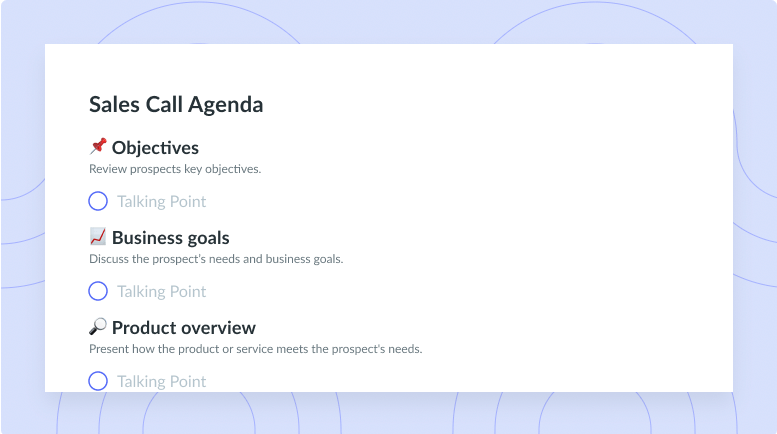Sales Meeting Agenda: 8 Topics to Cover With Your Team
Running an effective sales meeting can help ensure that your team knows how their efforts lead to success. Read on for how to structure and run your sales meeting.
If you want your sales team to be as effective and productive as possible, where do you start?
Take a good look at your sales meeting and how thorough the agenda is. Does it need some work? If your sales reps leave each sales meeting thinking it could have been an email, the answer is a firm yes.
If it’s time to give your meeting agenda a complete overhaul, look no further than Fellow. We’re here to ensure that your days of unorganized and poorly run meetings are a thing of the past.
- The importance of sales meetings
- The elements of a successful sales meeting
- Ways to start a sales meeting
- What to included in a sales meeting agenda
- How do you structure a sales meeting?
The importance of sales meetings
So, why hold a sales meeting in the first place?
For starters, they help the sales department to come together and connect. This will ensure that all expectations are aligned, it helps to foster group conversations and discussions. Each sales member can check in with one another, see if they can assist with a roadblock that a team member is facing, or come up with a solution the team as a whole may be facing.
These meetings can also serve as internal check-ins between sales leaders and practitioners.
Additionally, be sure to utilize sales meetings to:
- Generate new ideas
- Motivate your team and everyone in attendance to do their best
- Discuss any new insights
- Share customer stories
- Discuss sales forecasting for the upcoming quarter
- Share or elaborate on company announcements

Pro tip
Use a meeting management tool like Fellow to share a meeting agenda with your team and collaborate on achieving goals.
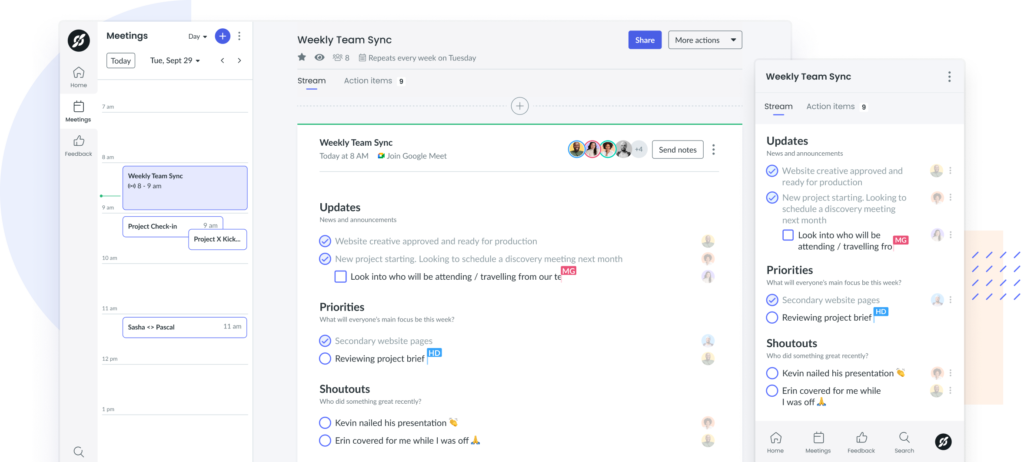
The elements of a successful sales meeting
When holding a sales meeting, there are specific elements that you can be sure to incorporate for it to be a success. Consider adding these elements to run an effective sales meeting for all attendees.
- Choose the right cadence: The right cadence is going to look different for every sales team. Whether you decide to meet weekly, bi-weekly, quarterly, or twice a year, be sure to make each meeting count. Unsure of the proper cadence? Send out a survey to see if your sales team has a preference. Don’t be afraid to change the cadence of this meeting if you realize you’re meeting too often or not enough.
- Start and end on time: This element is especially crucial because you want to respect everyone’s time. It can be incredibly frustrating to leave people waiting for a meeting to begin, especially if the meeting is virtual. And, because it’s common for sales reps to have a meeting right after, be sure to end on time, too. Remember that your team’s time is important. Additionally, when you as a sales manager are punctual, it sets this precedent across the entire team.
- Get the team involved in the agenda: It’s an absolute must that you send the sales meeting agenda out to attendees beforehand. In this team meeting, get everyone involved by asking to discuss their latest updates and obstacles.
- Amplify wins: Did a sales representative close a major deal recently? Or maybe even something as simple as landing a meeting with a hard-to-reach customer. Whatever the case may be, when the team has a win or something exciting to share, be sure to add it to the agenda! Doing so is a great way to boost morale and add some team spirit to the meeting.
- Make space for questions and ideas: Don’t forget to save time or factor in time for questions and ideas throughout or at the end of the meeting. These meetings should always include time to exchange thoughts and come together to have a meaningful conversation as a unified group. Sales team members should know ahead of time that these meetings are the right time and place to brainstorm or come to their peers with questions or roadblocks.
Ways to start a sales meeting
Looking to start the sales meeting on a positive note? Consider kicking your sales meeting off in one of these ways:
- Icebreakers: Consider starting the meeting off with an icebreaker question, like asking what everyone did that weekend, what their favorite hobby to do outside of work is, or what the best place they traveled to is. You may be surprised by the answers!
- Recognition: Another positive way to start the meeting is to share some recognition. If a sales rep had a team member go above and beyond to assist in a problem they were experiencing, share it with the team! You can also use this time to congratulate a team member on a recent win they’ve had.
- Updates: Have something that is on a need-to-know basis? Be sure to share any relevant or crucial updates with the team at the start of the meeting. These could also be updates on a smaller scale, like where a rep is on closing a deal.
What should be included in a sales meeting agenda?
The most productive meetings always start with an agenda. When creating the agenda for your sales meeting, be sure it includes these details. Doing so ensures everyone is prepared and ready for discussions.
- Wins
- Pipeline
- Roadblocks
- Prospect feedback
- Metrics review
- Announcements and FYIs
- Competitors
- Training
1 Wins
The first action item to add to the agenda is wins and successes. Have your sales reps and managers share a recent win they’ve had to get the conversation started. If a team member closes a major deal, has some exciting insights to share, or if the team is estimated to hit an exciting target, share this first!
Nothing gets the team motivated and energized quite like good news.
2 Pipeline
The pipeline is where you’ll get status updates on the pipeline of each sales rep. Doing so allows the team to identify instances where someone may need some support or help from another. This will also ensure everyone remains accountable and doesn’t fall behind on their responsibilities.
If someone is falling behind, this update will shed some light on the situation.
3 Roadblocks
Is a sales rep experiencing a bottleneck or roadblock that is hindering their progress? Whether this roadblock has to do with a customer, travel plans gone awry, or an issue with a team member in a different department, make sure there’s time within the agenda to go into detail.
Beginning with pipeline updates should be a natural segway into any hurdles a team member is experiencing. There could be a meeting attendee who has an idea or a way to help.
4 Prospect feedback
More than one sales rep likely has a story, feedback, or something to share from a prospect or customer. It should always be a priority to share this with other members of the sales department. Whether this feedback is positive or negative about a product or service or hearing feedback on the overall brand, collecting this information is crucial to the organization’s success.
5 Metrics review
Your sales team has specific numbers to hit, and this meeting is the perfect time to review these metrics. How close is the team to hitting these metrics? If there is still a lot of ground to cover, use this time to brainstorm a new strategy or plan of action to get closer to this number.
Avoid calling out anyone by name who may be slacking in performance and holding the team back from accomplishing their goals. At the end of the day, the sales department needs to work as a team to hit metrics and strive for success.
6 Announcements and FYIs
For low-level announcements, need-to-knows, and general housekeeping – now is the time!
As a sales manager, convey any business updates or changes within the team’s structure during this meeting. It’s important to remain as transparent as possible, and these updates make that possible. There should also be time for any sales rep to share announcements too, like perhaps they’ll be out of the office for a few weeks or have personal news to share.
7 Competitors
You should always have one eye watching your competition, especially as a sales team. Are they restructuring, making adjustments to their product or service, or changing their pricing model? Have each sales rep come to the meeting with something they’ve noticed their competition is doing and whether that impacts the organization positively or negatively. You can even assign each rep a specific competitor to make this easier.
Nothing is off-limits here!
8 Training
As a sales team, there’s always something new to learn or a new tactic to try. Because of this, there is likely updated training to be had. Coaching your team on making the most of their skills, making the most of their strengths, or improving on their weaknesses is a must for any sales manager.
Consider adding team-building or skill developing training into the agenda of the sales meeting.
How do you structure a sales meeting?
Unsure exactly how to format your sales meeting agenda? Fellow has you covered! Check out these sales meeting agenda templates that you can get started using today!
Below are some sales meeting agenda templates you can start using in Fellow:
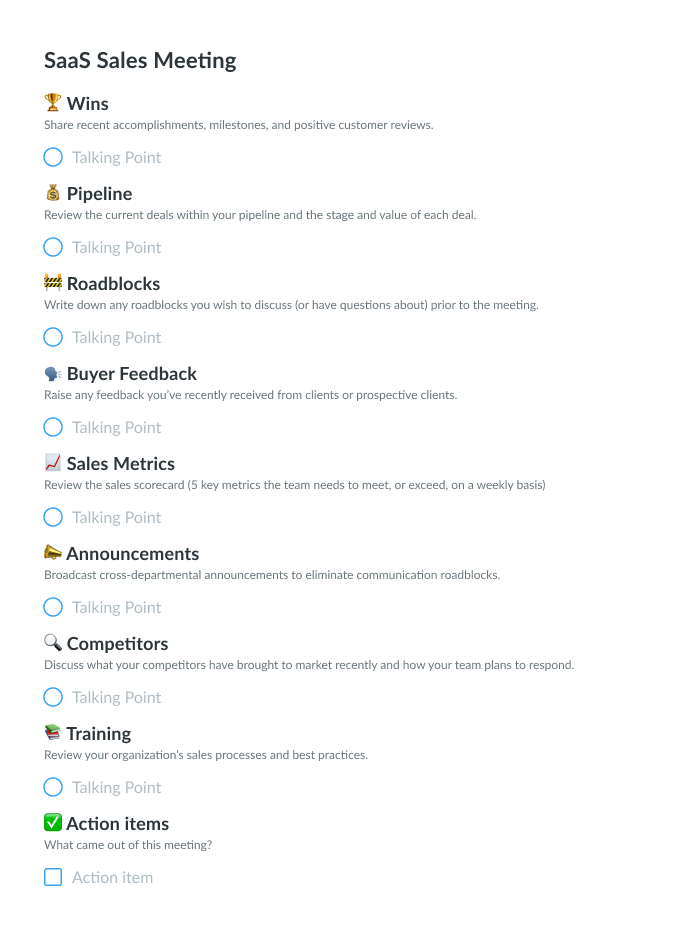
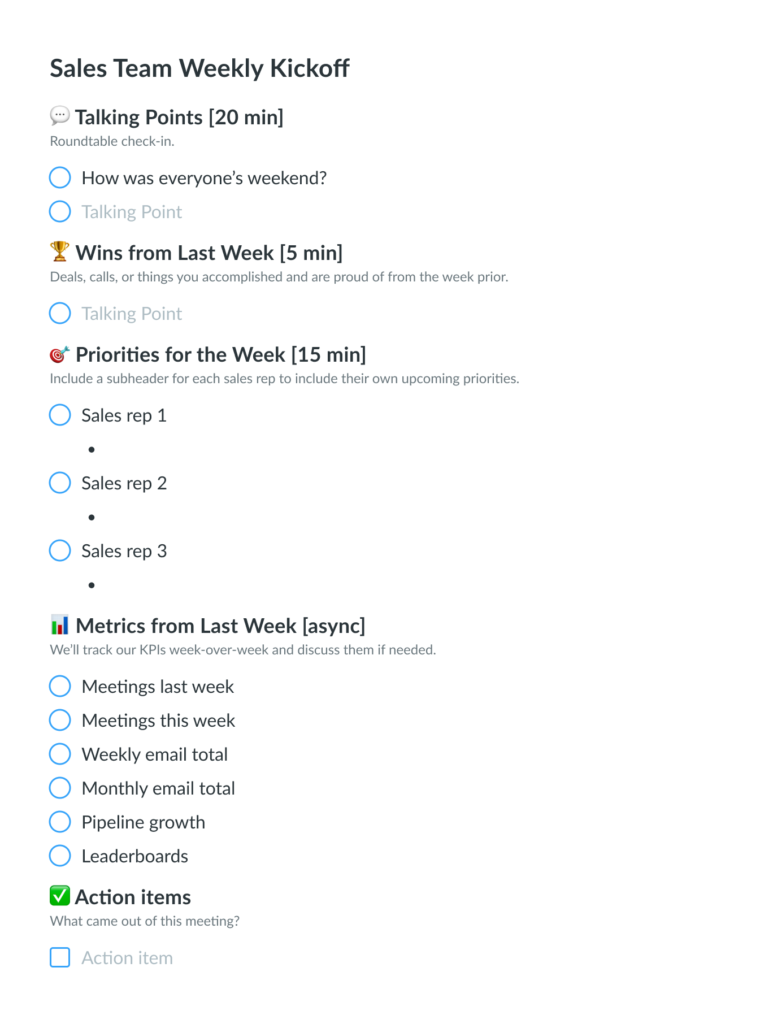
A smarter way to hold sales meetings
You always want your sales reps focused on one thing — your customers. Running an effective sales meeting can help ensure they know how their efforts lead the organization to success. They should be organized and complete with an agenda identifying the action items and necessary details to discuss.
Without it, you’re wasting time, money, and energy.






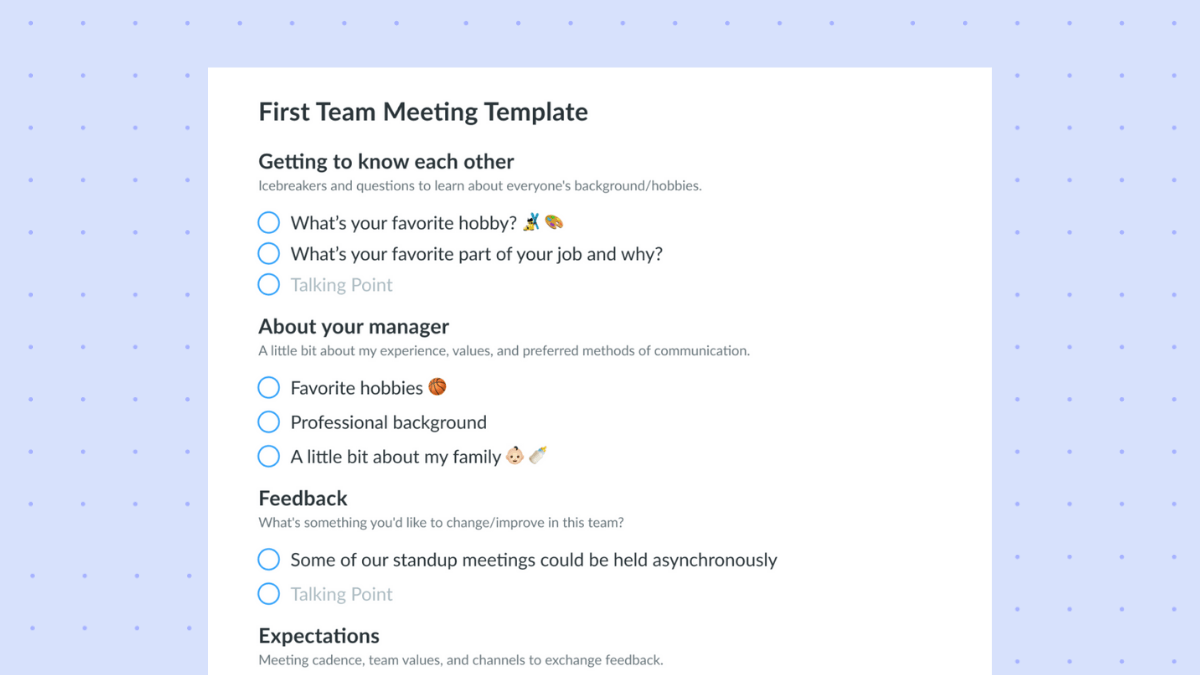

![How to Successfully Run a Team Update Meeting [+ Examples]](https://fellow.app/wp-content/uploads/2022/06/How-to-Run-a-Team-Updates.jpg)
